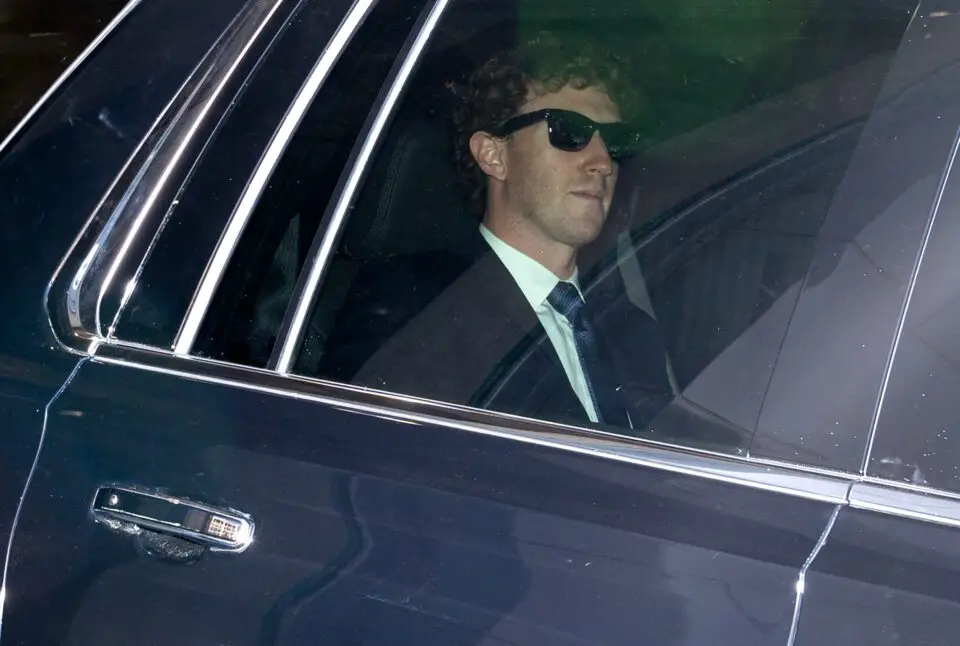Towards the end of Mark Zuckerberg’s testimony in a Washington, DC courthouse, a smile flashed across his face.
Meta’s lead attorney, Mark Hansen, had asked the CEO if he was “happy” about paying $19 billion for WhatsApp in 2014.
Zuckerberg flashed a grin, took a brief pause, and responded, “I’d do it again.”
Over the last decade, the growing scale of Instagram and WhatsApp cemented Meta as one of the most powerful companies on earth. Now, the US government, via a Federal Trade Commission antitrust lawsuit, is trying to unwind those acquisitions through a trial that began on April 14th. Zuckerberg spent roughly 13 hours across three days answering questions from the FTC and Meta lawyers. Much of that time on Wednesday was devoted to attempting to refute one core argument: that he bought both apps to take them out and not to make them better.
The FTC contends that WhatsApp was acquired because Zuckerberg and his executives were worried at the time that private messaging apps would grow into fully-fledged social media businesses. From the witness stand, Zuckerberg acknowledged that it was “something I thought about,” but that he thought it would be “extremely unlikely” for WhatsApp to compete with Facebook after he met its two co-founders, Jan Koum and Brian Acton.
He said it was “hard to express the disdain” that both men had for social media and advertising, and that after the acquisition, it was he who slowly pushed them to add more social features, like Stories, to WhatsApp. The court was shown an email describing an early meeting between Zuckerberg and Koum in which Zuckerberg told colleagues that he found Koum to be “unambitious” and that, shortly before Facebook acquired it, WhatsApp “was not trying to expand into different things.”
In Zuckerberg’s view, the early rise of WhatsApp represented a shift in how people were communicating online, when conversations were beginning to move away from public surfaces, like the Facebook News Feed, and into private chat threads. He was willing to pay a record sum for WhatsApp because he saw it as a “valuable” asset to help Facebook navigate that shift. He also saw WhatsApp as “leverage” for his tense relationship with Apple and Google.
“We’re always worried about them messing with us,” Zuckerberg said of both companies from the witness stand. He explained how “we rely on them for distribution” via their app stores, and that he thought buying WhatsApp would give him more negotiating power if he needed to push back on certain store policies. (“I’m not sure how much this actually helped,” he rightly acknowledged.)
An internal deck prepared for Facebook’s board of directors around the time of the WhatsApp acquisition predicted that the app would hit 2 billion users by 2024. In court, Zuckerberg revealed that WhatsApp now has nearly 3 billion users, and that Meta makes $10 billion a year from ads that send people to interact with businesses on WhatsApp, Instagram, and Messenger.

Instagram was in some ways a more direct competitor to Facebook, and the government has contended with the support of internal emails that Zuckerberg bought the app to “neutralize” it.
During his testimony, Zuckerberg said he “wasn’t worried” about Instagram competing with Facebook until it reached 1 billion users years later, after he bought it. Fearing that Instagram would siphon away engagement from Facebook, he then directed the Instagram team to rely less on feature integrations with Facebook for traffic.
Instagram’s co-founders, Kevin Systrom and Mike Krieger, didn’t react “super positively” to this directive, according to Zuckerberg. Both quit the company shortly after, though Zuckerberg mentioned multiple times that Systrom led Instagram for years longer than he originally predicted.
During examination from both the FTC and Meta’s legal team, Zuckerberg touted the resources he gave Instagram early on to help the app fight spam and scale its operations. The court saw internal documents showing that Instagram had barely 10 million users when it was acquired. Zuckerberg predicted that it was “extremely unlikely” that the app would have been as successful on its own. He and Systrom set the goal of reaching 100 million users when Instagram was purchased. It now has over 2 billion users.
Altogether, Zuckerberg’s final day on the witness stand painted Instagram and WhatsApp as investments that surpassed even his own expectations, not the victims of the catch-and-kill strategy the FTC is accusing him of carrying out to cement a monopoly.
Towards the end of the day, Meta ex-COO Sheryl Sandberg was called to testify. She was asked about an email she wrote to Zuckerberg around the time of the $1 billion Instagram acquisition in which she said they were paying “way too much.”
“I think I was wrong,” she said on Wednesday. “Like, very wrong.”

